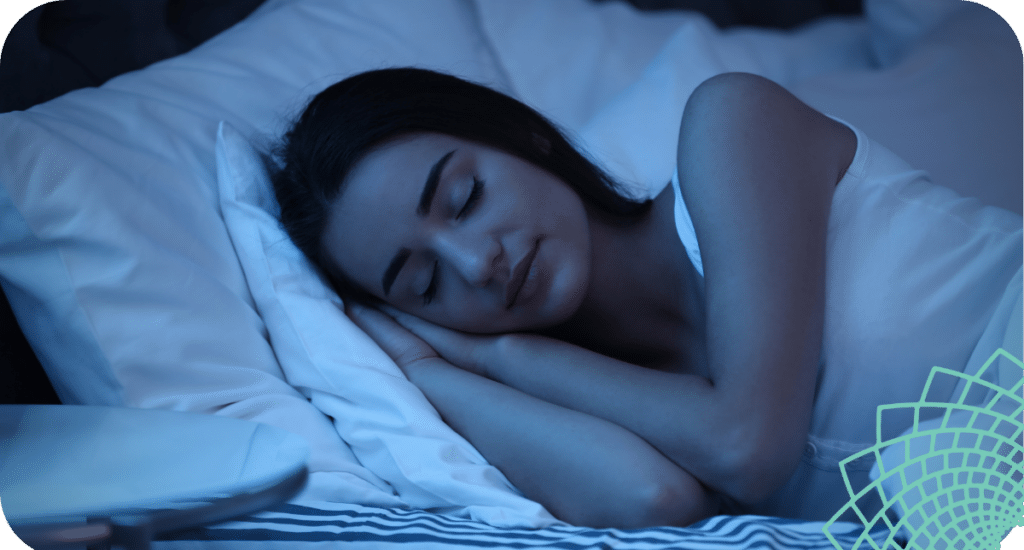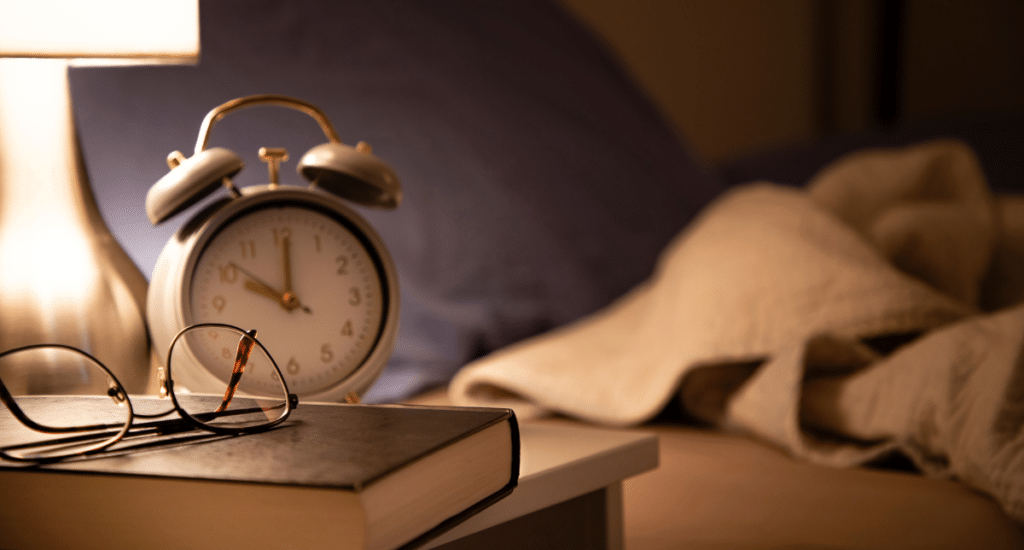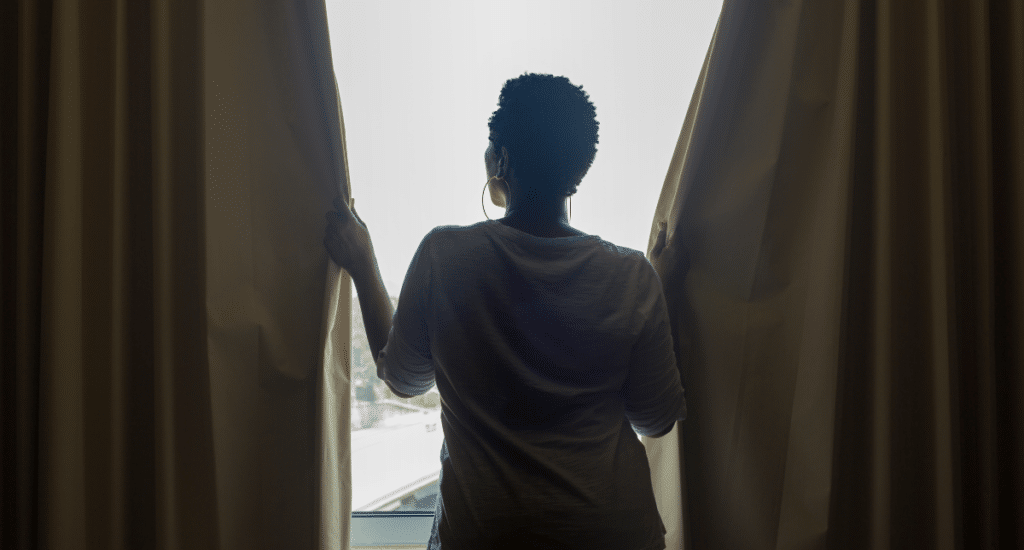“With proper sleep hygiene and consistent habits, you can reset your body’s internal clock and set yourself up for a restful night.”
A calming and consistent nighttime routine can drastically improve your sleep quality, reduce stress, and set a positive tone for your day. If you’re struggling to wind down at night or dealing with poor sleep quality, establishing a nighttime routine can be a game-changer. In this guide, we will walk you through the essential steps to create the perfect nighttime routine while integrating effective tools like the Bedtime Cortisol Test and the Sleep & Stress Test to optimize your approach for better results.

Why a Nighttime Routine Matters
Creating a relaxing and intentional bedtime routine can have a profound impact on your overall health. Creating a relaxing and intentional bedtime routine can significantly impact your overall health.
Your body thrives on consistency, and a well-structured routine helps signal to your brain that it’s time to wind down, regulate your sleep-wake cycle (also known as the circadian rhythm), reduce cortisol levels (the stress hormone that can disrupt sleep), and promote better mental and physical health.
With proper sleep hygiene and consistent habits, you can reset your body’s internal clock and set yourself up for a restful night.
A Helpful Guide to the Perfect Nighttime Routine

Set a Consistent Bedtime
Consistency is key when it comes to sleep. By setting a regular bedtime and wake-up time, you reinforce your circadian rhythm, which regulates your body’s natural sleep cycle. Try to go to bed and wake up at the same time every day, even on weekends, to maintain consistency and enhance your sleep quality.
Limit Blue Light Exposure
Blue light from screens can interfere with your body’s ability to produce melatonin, the hormone responsible for making you feel sleepy. To optimize your nighttime routine, avoid screens (phone, computer, TV) at least 1-2 hours before bed and If you must use screens, use blue-light-blocking glasses or apps to filter out blue light.
Limiting exposure to artificial light in the evening helps signal to your brain that it’s time to prepare for sleep.
Create a Relaxing Environment
Your bedroom should be a sanctuary that promotes relaxation.
To achieve this, dim the lights in the evening to signal to your body that it’s time to wind down, keep your bedroom cool, quiet, and clutter-free to enhance comfort and tranquility, and consider using blackout curtains to block out external light.
A peaceful and calming environment can support deeper, more restful sleep.
Incorporate Stress-Relief Activities

Managing stress before bed is crucial for better sleep. Consider incorporating calming activities such as mindfulness or meditation for 10-15 minutes, journaling to release any lingering thoughts and reduce mental clutter, and gentle stretching or yoga to relax your body and prepare for sleep.
Stress relief before bed can help you unwind mentally and physically, making it easier to fall asleep.
Avoid Stimulants Late in the Day
Certain substances can interfere with your sleep quality.
It’s essential to avoid things such as caffeine (coffee, tea, chocolate) in the late afternoon and evening, nicotine, which is a stimulant that can disrupt sleep, and heavy meals within 4-6 hours of bedtime.
By reducing stimulants, you give your body the best chance to relax before sleep.
Monitor and Manage Stress Levels

Stress management is vital for building an effective nighttime routine. Use tools like the Sleep & Stress Test to assess your stress levels and understand how they’re affecting your sleep. By identifying any imbalances, you can make adjustments to your routine that promote relaxation and reduce cortisol (the stress hormone) before bed.
Optimize Evening Nutrition
What you eat and drink in the evening can impact your ability to fall asleep. Consider avoiding heavy, spicy, or sugary meals that may cause discomfort or digestive issues. You can also drink calming teas like chamomile or herbal blends that promote relaxation, and taking supplements like magnesium can also help your muscles relax and support better sleep.
Eating light and calming foods can help prepare your body for restful sleep.
Track and Manage Cortisol Levels
Cortisol levels fluctuate throughout the day, typically peaking in the morning and tapering off in the evening. However, high cortisol levels at bedtime can interfere with your ability to sleep. The Bedtime Cortisol Test is an excellent tool for assessing your cortisol patterns. If your levels are elevated at night, it’s time to make adjustments to your routine, such as incorporating more stress-relief practices or improving your evening nutrition.
Bonus Tips for Better Sleep

Establish a Wind-Down Ritual: Dedicate 30-60 minutes before bed to activities that promote relaxation, like reading a book or taking a warm bath.
Create a Technology-Free Zone: Keep phones, tablets, and laptops out of the bedroom to help create a sanctuary for sleep.
Use Aromatherapy: Lavender, chamomile, and other calming scents can promote relaxation and help ease anxiety before bed.
The Importance of Testing
Both the Bedtime Cortisol Test and the Sleep & Stress Test are invaluable tools in understanding how stress and cortisol levels impact your sleep. By identifying stress imbalances, you can make targeted adjustments to improve your routine. Regular testing can help you stay on track and ensure that your routine continues to support your sleep health.
Final Tips for Optimizing Your Nighttime Routine and Improving Sleep Quality
Building the perfect nighttime routine is a simple but effective way to improve your sleep quality and reduce stress. By following the steps outlined above, incorporating stress-relief activities, and utilizing tools like the Bedtime Cortisol Test and Sleep & Stress Test, you can achieve better sleep and wake up feeling refreshed and ready to take on the day. Make consistency, relaxation, and stress management the cornerstones of your nighttime routine for long-term benefits.









